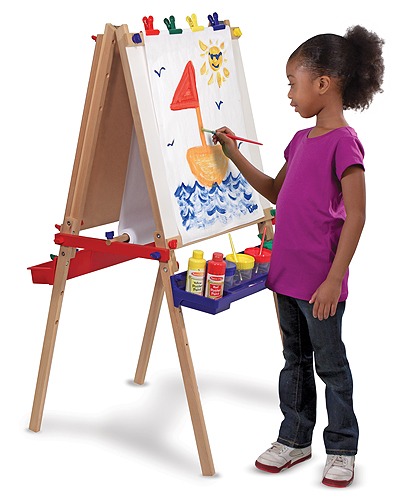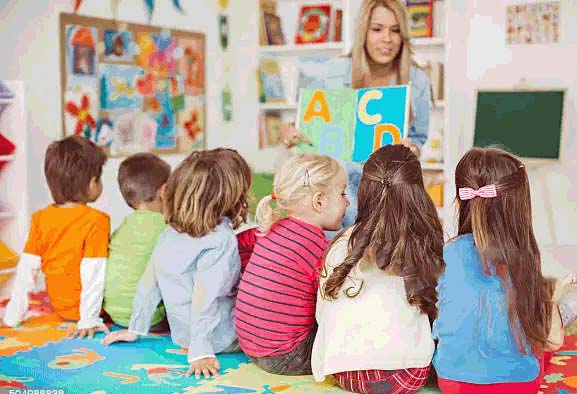
Early Learning & Educational Milestones For Preschoolers
Early education for preschoolers is an important step in preparing young children for their journey through school and beyond. As the foundation of a child’s educational experience, preschool provides an opportunity to develop skills that will be beneficial over the course of their life. With the right combination of challenge and fun, early learning activities can help children become more confident, independent learners.
4-Year-Old’s Cognitive Development.
At this stage, a preschooler or 4-year-old’s thinking and learning skills are in full bloom. Any activity can hold their attention for 10-15 minutes, and by this time they have developed the ability to remember many things, like parts from their favorite stories. A 4-year-old enjoys pretending and has a vivid imagination. They invent things like princesses and monsters. By four, a child can understand concepts like big or little, tall or short. They are able to correctly name some colors, in most cases it would be red, blue, and yellow. They understand the concept of counting and is able to count out five objects, and may recognize some numbers. A Preschooler is capable of following three instructions given at the same time such as, “put your toys away now, wash your hands, and sit down to eat.”Most 4-year-olds are interested in new experiences and quite curious. They ask and answer the who, what, when, where, and why questions.
Preschooler’s Social & Emotional Development.
Preschoolers display more self-confidence and separate easily from their parents around four years. Four-year-olds enjoy playing together with other children and sharing Toys they love. They are capable of taking turns, sharing, and cooperating but disagreements still happen. Anger is expressed verbally rather than physically, and children at this age can feel jealousy.
Get a head start on your child’s future!
As a parent, you want the best for your child’s future. One way to ensure their success is by providing them with a strong foundation in their early years. Early learning and educational milestones play an essential role in shaping your child’s future.
Research shows that children who receive high-quality early education are more likely to perform better academically and have fewer behavioral problems than those who do not. By setting up fun and engaging learning activities at home or enrolling them in preschool programs, you can help your child develop crucial skills such as language, cognitive abilities, social-emotional development, and motor skills.
Moreover, it’s important to keep track of key milestones during this stage of development. These include recognizing shapes, colors, and letters; counting objects; following simple directions; using scissors properly; identifying emotions; managing conflicts with peers among others. Knowing what to expect will help you identify any areas where your child may need additional support or intervention so that they can continue on the path toward a bright future!
.
.
Learning The Language & Communicating
You can carry on quite a conversation with a 4-year old and he or she uses complete sentences and asks endless questions during the conversations. These conversations with a preschooler are often very dramatic and imaginative. 4-year olds have learned words are powerful, and they use words to get their points across. Don’t be surprised if some of the words your young one uses are not the ones you want to hear from your child. Try not to overreact if your child utters swear words. A 4-year-old can be very bossy at times, perhaps telling you to “stop talking” or her playmates to “come here now.” Using the words “please” and “thank you” when you’re talking to your child helps them learn politeness and positive social language.
Physical – Large and Small Muscle Development
A four-year-old needs plenty of opportunities to play & exercise. Here are some physical skills that a child of that age should be able to do: Go upstairs and downstairs without your help and run! Running is more controlled at this age, too. He can start, stop and turn when he is running. Hop on one foot and/or balance on one foot for a few seconds. Kick a ball forward. Throw a ball overhand and catch a bounced ball most of the time. A 4-year-old’s small muscle or fine motor skills have developed to the point where he can: draw recognizable simple objects; copy crosses and squares; paint some letters; complete easy & simple puzzles; build a tall tower with blocks. There are several things you can do to help your 4-year-old to grow and learn. A few ways you can support your child’s development are to: read aloud or tell stories, and encourage your preschooler to look at books on his own. Encourage interest in writing and words. Provide him with paper and notebooks for writing. Print letters and numerals for him to see and copy. Provide a variety of art experiences.
Help Your Child To Learn
Sort and count everything in sight like silverware, socks, rocks, and leaves. Talk about things being in, on, under, behind, beside, before or after, larger than, or smaller than. Build self-esteem by praising accomplishments, and providing opportunities to experience freedom and independence. Be sure your child has lots of outdoor play. Provide a variety of props and dress-up clothes to play grocery store, birthday party, or firefighter. Limit TV watching; if you do watch TV, do it together so you can discuss what is happening.

Support your child’s development in a fun and engaging way
One way to support your child’s development is by incorporating educational toys, games, and activities into their playtime. For instance, playing memory games or puzzles can help develop cognitive skills such as problem-solving and critical thinking. Additionally, reading books with your child can foster language development and improve their vocabulary.
It’s also important to encourage physical activity in young children as it promotes gross motor skills development. Simple activities like rolling a ball back and forth or dancing along to music can be both fun and beneficial for their growth. Furthermore, engaging them in sensory play such as finger painting or exploring different textures can enhance their fine motor skills while stimulating creativity.
Overall, supporting your child’s development doesn’t have to be boring or burdensome; there are numerous ways you can make learning fun and exciting for them while fostering critical developmental milestones.
Provide them with opportunities to socialize
As adults, we’re constantly surrounded by people and accustomed to interacting with others in various settings. But since children are not yet as familiar with socializing, it’s up to parents to help them learn how.
Signs of Developmental Delays
Sometimes, children aren’t developing as typically expected. Here are some signs that indicate your child may not be developing as other children when she is unable to: throw a ball overhand; jump in place; grasp a crayon between her thumb and finger; scribble; stack four blocks; use sentences of more than three words. If your child, still clings or cries when you leave him; ignores other children; doesn’t respond to people outside the family; doesn’t engage in pretend play; lashes out without any self-control when he is angry or upset. if you have concerns about your child’s development contact your local healthcare provider.
View All Education-Related Toys Here: Educational Toys.

